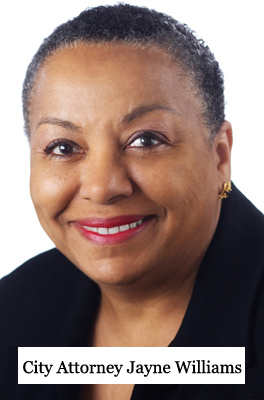It’s Confirmed: I’m the Subject of a Police Investigation
Update: Today, Nov. 18th, I received the response to the California Public Records request I filed on my name. The turned in some records, “forgot” others, and specifically declined to turn in others. Here are the reasons they gave for not turning in those records:
1) The records reflect the analysis or conclusions of an investigating officer and are exempt under California Government Code section 6254(f).
2) The records contain attorney-client communications, “the disclosure of which is exempted or prohibited pursuant to federal or state law… relating to privilege” under California Government Code Section 6254(k). Thus, pursuant to Government Code Section 6254(k), the records are exempt from disclosure as attorney-client privilege pursuant to California Evidence Code section 954 as it applies to those portions of the records requested containing confidential communications between the City and its legal counsel.
3) The records contain personal contact information and are exempt pursuant to the public interest exemption under California Government Code section 6255. The public interest served by withholding the record outweighs the public interest in disclosure.
So that we are clear, reason 1 only applies to investigations by law enforcement agencies. A record of an investigation by some other part of City Hall, would not be included. This means that my name appears in an SLPD investigatory report. Moreover, as I have never been interviewed by SLPD nor do I have any personal knowledge of anything that would relate to a personal investigation – there is no reason whatsoever for it to appear in such an investigative record except if I was the subject of the investigation.
I was a little puzzled about reason 3, because a lot of the records they did disclose included personal contact information. However, a friend in law enforcement mentioned that if they had used a Confidential Informant on my case, they would not want to disclose the information. In his opinion “A confidential informant has made up lies about you, which means someone asked that CI questions about you, which means you have been investigated for some reason or another.”
Whatever reasons they were, it would seem by answer 2 that the City Attorney was involved.
So, the far I expressed a few weeks ago, that the SLPD is investigating me – or, more likely, trying to frame me for something to silence my criticisms – seems to have been justified.
—
Original posting from 10/21/23
This morning I woke up to a new concern: Is the San Leandro Police Department working hard to frame me for something?
As their most outspoken critic, I’ve certainly given them plenty of reasons. And it’s not like they don’t have a history of malicious arrests and prosecutions: the City just settled the lawsuit brought by the two men that were arrested last year in a sting operation directed against gay men. And then there is High School teacher Rick Styner, who is facing false charges of “panties burglary” and possession of child pornography because he did something to piss off former San Leandro High School Principal and cop darling Amy Furtado.
I don’t think I’m paranoid in thinking I’m next on their list. If they silence me, others may be less willing to speak out against police misconduct.
Of course, using the resources of the Police Department to persecute critics is exactly the sort of thing you see in a police state, and that’s what my warnings have been about. Surveillance is of little use if you’re not planning to do something with it.
But let’s not get ahead of ourselves. I don’t actually have any concrete reasons to believe the SLPD is investigating me. All I have is the knowledge that City Hall is trying to hide information concerning me, from me.
About six weeks ago I made a California Public Records Act request for any records of communications that included my name. I figured with all my public criticism of the police and City Hall, it’d be interesting to see if they were talking about me.
Apparently they are. Today I got word that they’ve compiled all the records with my name but need three more weeks “to cull the responsive non-exempt documents from the documents exempt from disclosure.”
Trouble is, no record that has my name should be exempt.
Exempt records tend to be things where there is a big need to protect the privacy interests of someone else. For example, personnel and medical records are exempt, as are records with private information citizens are compelled to submit. Litigation records are exempt, but only during the litigation. There is no legitimate reason for my name to appear on any legal records, anyway.
Now, it’s true that the City may try to use the “draft” exemption, and claim that any document that has my name that they don’t want to release is a mere draft. However, such situations require a balancing act of the public interest of disclosure vs. non-disclosure. I’m pretty sure that any Court would agree that they fall in my favor. Plus, in the past, the City has not used this excuse to not provide public records. If it did now, we’d know it definitely has something to hide.
In reality, the only exemptions that the City could legitimately invoke to deprive me of records containing my name is the “investigative” and “intelligence” exemptions. That means that if the SLPD is investigating me, the City doesn’t have to give me those records. It will, however, have to tell me the reason why it’s not giving me the records. I’ll have to wait three weeks to know.
I do know that I have not committed any crimes. I should qualify that by saying “knowingly”, because experts say that the average person commits three felonies a day. Our system is set up so that if the powers that be want to go against someone, they can use the “law” to do so. And unless we stand up against it, it will become even more so.
Ultimately, regardless of whether I’m being investigated or not, the mere fact that I am concerned about police retaliation for exercising my first amendment rights to free speech and petition, speaks greatly of how repressive our system is becoming.
Update: The City had said it’d fulfill my CPRA request by Nov. 11th. I inquired about it on Nov. 12th and was told it’d be ready sometime this week. I inquired about it again today, and now they say it’ll be sometime in the week of Nov. 15th.


 It’s worse than I thought, but is it intentional or just careless?
It’s worse than I thought, but is it intentional or just careless?

 Another day, another opportunity for the San Leandro City Council to show its contempt for good governance, the voters and, well, the law. This time it comes courtesy of City staff and the City Council’s
Another day, another opportunity for the San Leandro City Council to show its contempt for good governance, the voters and, well, the law. This time it comes courtesy of City staff and the City Council’s